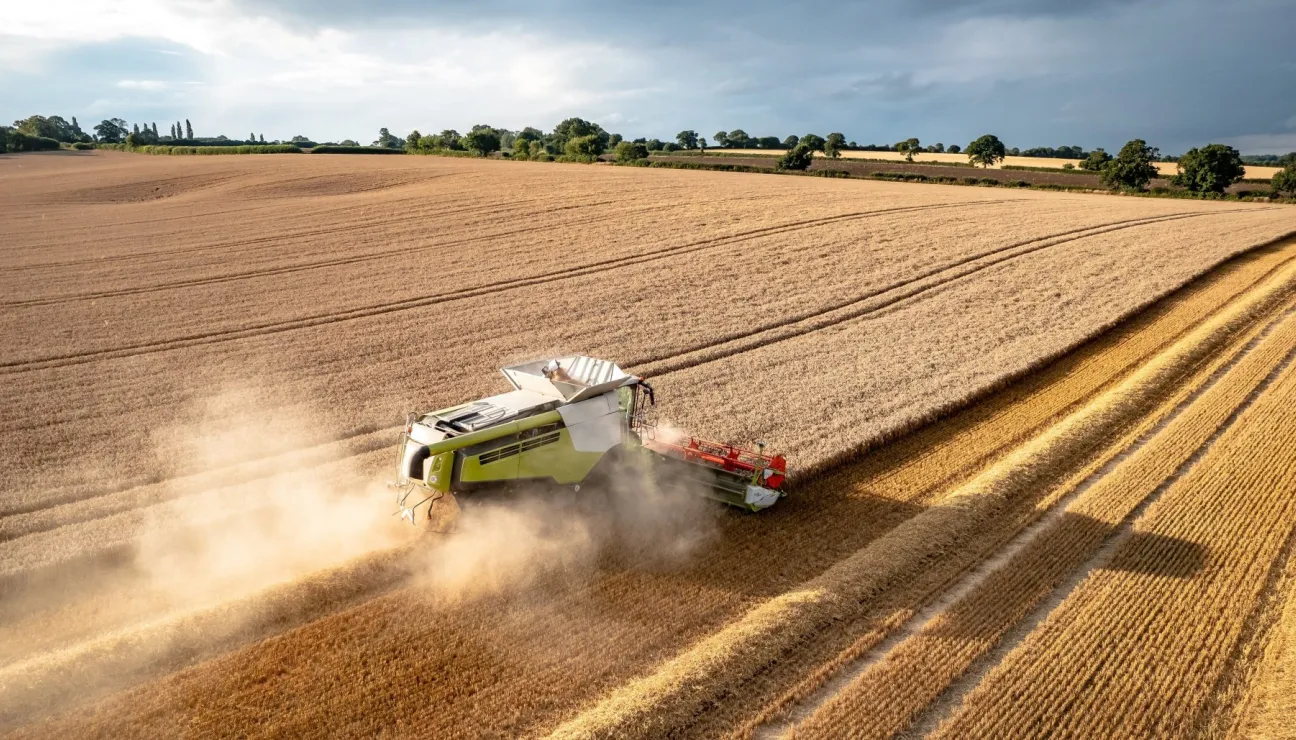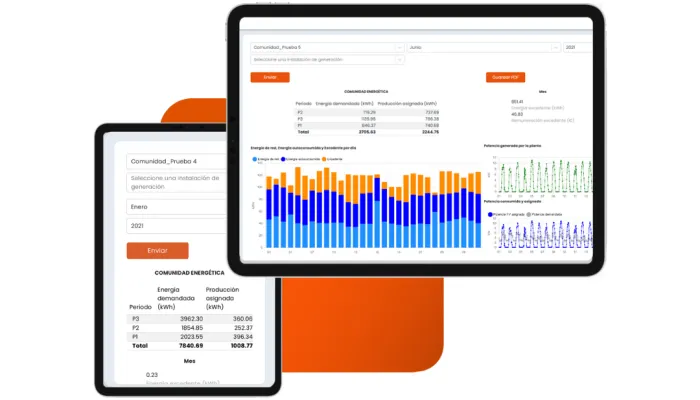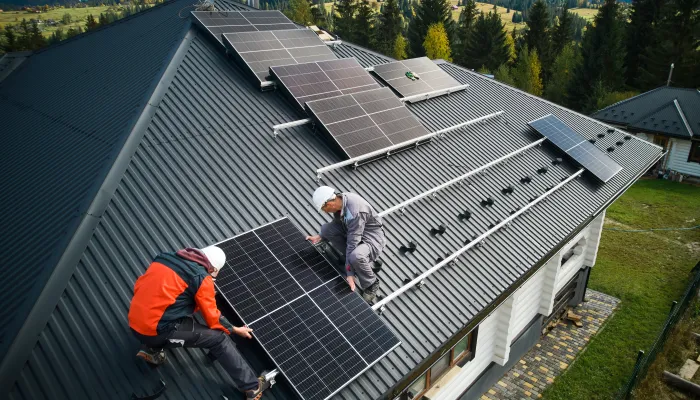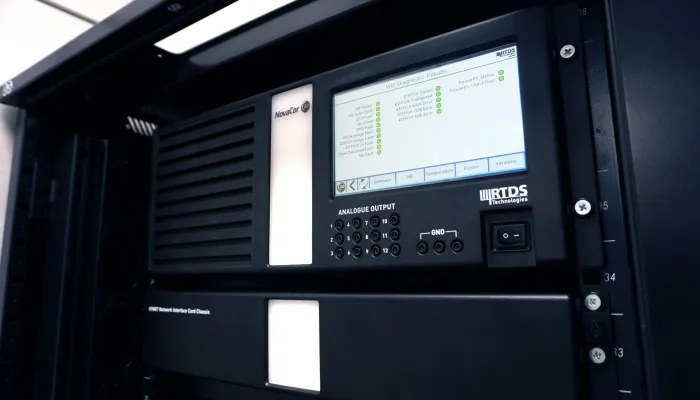5 innovative solutions in the management of waste and by-products in the agricultural and forestry sector

CIRCE-Technological Centre has organised a technical conference at the International Fair of Agricultural Machinery (FIMA) 2024 to present the innovative solutions it is carrying out in the management of waste and by-products in the agricultural and forestry sector. Specifically, it presented five projects focused on decarbonisation through the use of biomass, sustainable management of the forest ecosystem and optimisation of the use of by-products such as slurry and coffee waste.
These projects are developed at regional level, specifically in Aragon, within the framework of Measure 16 of the Rural Development Plan 2014-2020 and the National Strategic Plan of the CAP 2023-2027 for Aragon. They are the essence of what are known as Cooperation and Operational Groups, which aim to contribute significantly to progress towards sustainable agriculture, addressing specific problems and needs of farms, as well as agri-food companies, in order to improve their competitiveness.
Another important objective of these projects is the need to promote the development of fire prevention infrastructures and a positive impact on all economic, environmental and social factors in rural areas of Aragon.
The projects presented were: "Maintenance of firebreaks by planting adapted herbaceous species and grazing", "Promoting decarbonisation through efficient and sustainable forest management of local biomass and promotion of grazing areas", "VALIQPORK", "OPTIDIGEST" and "FERTCAFÉ".
1.- Maintenance of firebreaks by sowing adapted herbaceous species and grazing.
This project operates in the provinces of Huesca and Zaragoza, with the aim of transforming the current management model for the maintenance of fire prevention areas and infrastructures. The proposal focuses on converting these areas into pastureland, using adapted herbaceous species that can be grazed by extensive livestock farms. This initiative seeks to promote sustainable development, as well as the maintenance of the richness of habitats and biodiversity. In addition, it is seen as a tool for generating local wealth, which can help to combat the advance of depopulation and ageing in the rural environment of the Aragonese territory.
The cooperation group is made up of seven entities, of which Campos Rey Trabajos Forestales, S.L. and Grupo Pastores - Oviaragón, S.C.L. act as beneficiaries, while non-beneficiary members are Unión de Agricultores y Ganaderos de Aragón (UAGA), Asociación para el Desarrollo y Fomento de las Cinco Villas (ADEFO), Asociación para el Desarrollo Rural Comarcal de la Hoya de Huesca (ADESHO), Asociación para el Desarrollo Integral de la Cuna de Aragón (ADECUARA) and CIRCE-Centro Tecnológico, which acts as project coordinator.
The actions contemplated in the project seek to maintain the natural ecosystem and increase biodiversity through the establishment of grasslands, thereby contributing to the permanence and quality of habitats in these enclaves. All this, at the same time as reducing the risk of fire, reducing the spread of fungal pathologies and reducing pollutant emissions associated with burning and the necessary clearing work. Furthermore, these ecosystems will act as carbon sinks, helping to further reduce CO2 emissions into the atmosphere and improving soil quality by reducing its tendency to erode thanks to the supply of organic matter.
2.- Promote decarbonisation through efficient and sustainable forest management of local biomass and the promotion of grazing areas.
The project aims to implement an efficient and sustainable forestry management model for the forests together with the exploitation of new economic activities with agroforestry resources that will allow the thermal decarbonisation of the Sobrarbe region, combined with the creation of new grazing areas that will contribute to the promotion of the livestock sector in the territory.
The cooperation group is made up of seven entities, of which Campos Rey Trabajos Forestales, S.L. and Agropecuaria del Sobrarbe, S.C.L. act as beneficiaries, while non-beneficiary members are the Sierra y Cañones de Guara Livestock Farmers Association, the Boltaña Town Council, the Association for the Development and Promotion of Cinco Villas (ADEFO), the Association for the Regional Rural Development of La Hoya de Huesca (ADESHO) and CIRCE-Technological Centre, which acts as project coordinator.
The main objective of the project is to develop an effective model of forest management together with the exploitation of new economic activities with agroforestry resources that improve the natural ecosystem, in which biomass can be extracted in a sustainable way from forest areas, contribute to the generation and fixation of local employment, through the different workshops and training to be carried out to promote new forestry service companies and can be the starting point for the development of a biomass processing centre that allows the processing and distribution of a quality biomass suitable for consumption.
3.- VALIQPORK: Nitrification-denitrification as a solution for an efficient management of the liquid fraction of slurry.
In this case, the initiative is being developed in facilities in the Cinco Villas and La Litera region with the aim of improving the viability of livestock farms. Through a change in the liquid manure management model, based on nitrification-denitrification, the project seeks to mitigate the impact of one of the most important problems in the livestock sector in Aragon: the increase in pig production, the increase in the amount of slurry to be treated and the increase in Nitrite Vulnerable Zones.
It also aims to make the facilities economically profitable in order to recover the slurry without affecting the environment. In this way, the project, which began in July 2022 and will continue until the end of 2025, seeks to demonstrate the viability of slurry treatment using NDN (nitrification-denitrification) technology and its effectiveness in reducing the environmental impact of slurry compared to other technologies.
4.- OPTIDIGEST. Optimisation of the treatment of digestate for composting
Digestate is a powerful biofertiliser that is expected to increase in the Autonomous Community due to the implementation of new biogas plants as a renewable energy source. The main objective of the project is to promote sustainability in Aragon by preserving the fertility and water capacity of the soil. This will be achieved through the management and valorisation of digestate as waste for the mitigation of the effects of climate change through the use of compost derived from this material.
In addition, the project will monitor the type of field application of the compost produced and the quality of the soil in dry farming systems, evaluating the improvement in the distribution and efficiency of the compost by means of spreader discs.
This project is being developed in the regions of Bajo Cinca and Los Monegros, although it is intended that these actions can be reproduced in any other part of the Autonomous Community. You will find more information in this article on the management and recovery of digestate and coffee grounds.
5.- FERTCAFÉ, in search of a new sustainable fertiliser with coffee grounds.
The main objective of 'FERTCAFÉ' is to develop a new biofertiliser based on coffee grounds, giving rise to yet another example of circular economy in Aragon. Through this initiative, the aim is to contribute to the improvement of soil quality, the profitability and sustainability of farms, as well as to the reduction of the carbon footprint through the reuse of one of its residues. All of this is aligned with the requirements of the new CAP and Law 7/2022, of 8 April, on waste and contaminated soils for a circular economy.






